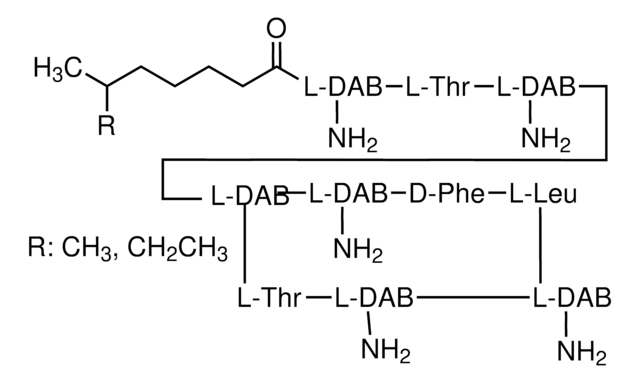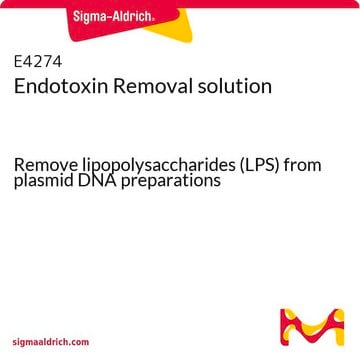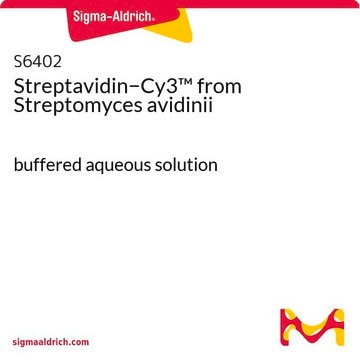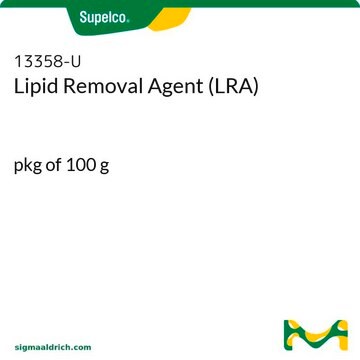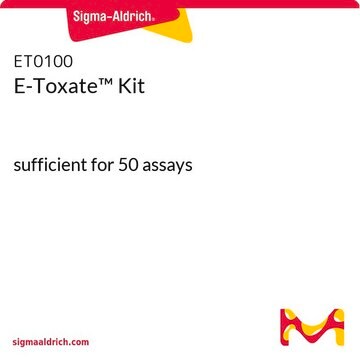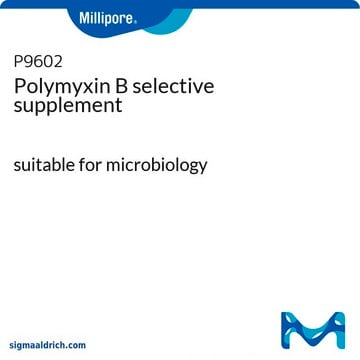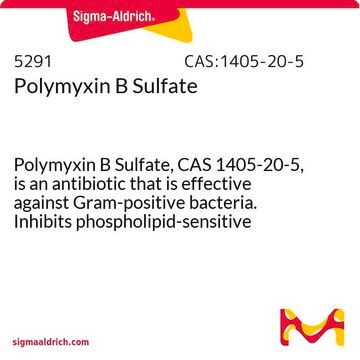P1411
Polymyxin B-Agarose
aqueous glycerol suspension
Synonym(s):
PMB
About This Item
Recommended Products
biological source
synthetic (organic)
Quality Level
form
aqueous glycerol suspension
extent of labeling
~1 mg per mL
technique(s)
affinity chromatography: suitable
matrix
Cross-linked 4% beaded agarose
matrix activation
cyanogen bromide
matrix attachment
amino
matrix spacer
1 atom
capacity
200-500 μg/mL binding capacity (lipopolysaccharide)(from Escherichia coli serotype 0128:B12)
suitability
suitable for chromatography
storage temp.
2-8°C
Application
Physical form
Storage Class Code
10 - Combustible liquids
WGK
WGK 3
Flash Point(F)
Not applicable
Flash Point(C)
Not applicable
Regulatory Listings
Regulatory Listings are mainly provided for chemical products. Only limited information can be provided here for non-chemical products. No entry means none of the components are listed. It is the user’s obligation to ensure the safe and legal use of the product.
JAN Code
P1411-VAR:
P1411-10ML-PW:
P1411-5ML:
P1411-BULK:
P1411-5ML-PW:
P1411-10ML:
Choose from one of the most recent versions:
Certificates of Analysis (COA)
Don't see the Right Version?
If you require a particular version, you can look up a specific certificate by the Lot or Batch number.
Already Own This Product?
Find documentation for the products that you have recently purchased in the Document Library.
Customers Also Viewed
Our team of scientists has experience in all areas of research including Life Science, Material Science, Chemical Synthesis, Chromatography, Analytical and many others.
Contact Technical Service